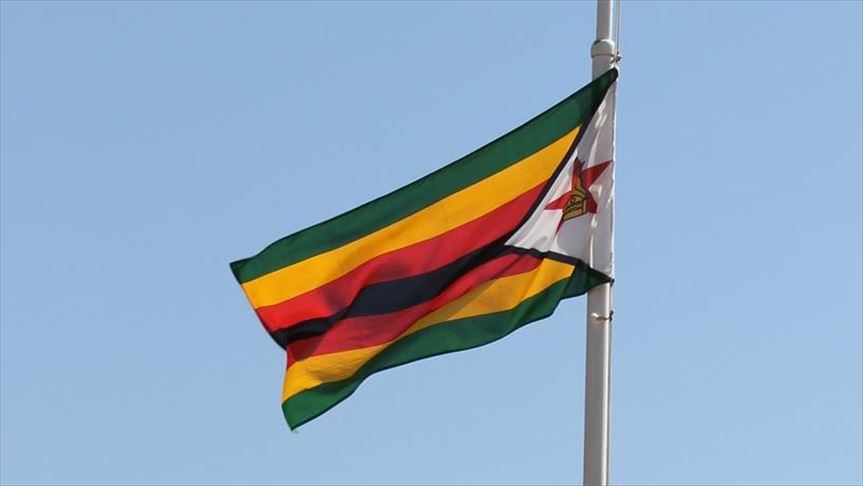By Newton Mambande
Following the unilateral declaration of independence (UDI) on November 11, 1965, in January 1966, Rhodesia led by Prime Minister Ian Douglas Smith, was placed under mandatory economic sanctions by the United Nations Organisation (UNO).
The economic sanctions had to do with the indigenization policy and economic independence of the country, as the rebel government led by Smith made a bold decision to be economically self-sufficient and not remit profits to the colonizer, the United Kingdom (UK), so that they could channel resources towards funding for economic growth and development. Thus, the financial and economic resources would not be remitted overseas but used to empower Rhodesians, but in this indigenization and empowerment policy, there was an exclusion of indigenous black Africans.
UDI’s aim was an attempt to ensure that communism would not cross the Zambezi into Rhodesia. Therefore, the cause of UDI was to defend Christianity and Western Civilization. There was fear that once they allowed power transfer from the white minority to the black majority, it was going to be game over. This meant that Marxist socialism would bring capitalism to an end because white settler capitalists were going
These economic sanctions were an attempt to ensure that the Smith regime would be brought to its knees. It is, however, argued that mandatory economic sanctions were a blessing in disguise as they brought positive economic growth and development.
Rhodesia designed an economic sanction system through the promotion of the insurance industry, which they used for financial mobilization. Many of the farmers and businesspeople insured their lives and businesses against financial loss from sanctions because it was going to be difficult for them to secure financial capital from the UK and western European financial markets.

Furthermore, Rhodesia exported insurance products and services to the neighboring countries to improve foreign currency flow.
This strategy of busting sanctions through education and promotion of insurance policy programs yielded positive results as most of the pooled resources from premium collections were used to finance undercapitalized sectors of the economy, such as agriculture and food security.
During the UDI era, insurance contributed significantly to GDP, accounting for 41 percent of total GDP.The Rhodesian government collected 5 percent from insurance companies as a tax, and much of the money was used to subsidize food and agricultural inputs.
Then, the smart policy regime and a positive business environment enabled conditions conducive to wealth creation. Importantly, insurance companies like Old Mutual collaborated with Anglo American Corporation to make mega investments in Hippo Valley Estates (sugarcane and citrus fruit) and Mazoe Citrus Estates, while Rhodesia National Insurance (Rhonat – now Zimnat) partnered with Tobacco Auction (T.A.) Holdings Sables to finance investments in Sable Chemicals and fertilizer manufacturing.
This economic sanction buster system successfully promoted import substitution systems as it brought in food security and stability. Indeed, that was the period when Zimbabwe became an economic powerhouse outside South Africa.
The sanctions failed to bring down Rhodesia because of its application of good governance principles and minimum corruption in public institutions. It was solely the 1973 Arab oil crisis that caused an economic shock in Rhodesia.
Rhodesia was able to bypass the mandatory economic embargo by collaborating with her few allies; namely Portugal and South Africa. There were transitional corporations (TNCs) like Anglo American Corporation, Lornho and Nestle that breached the international sanction system.
The sanctions imposed on Rhodesia caused a shortage of whisky in the markets. However, a shortage of imports in local markets reduced stiff competition. This enabled manufacturing companies to be more innovative and creative in promoting industrialization and employment creation in the economy.
Today, Zimbabwe is not placed under mandatory economic sanctions but under targeted sanctions for gross violation of property rights and corruption. According to the governing elitists and their sympathizers, Zimbabwe was slapped with sanctions for embarking on a land reform program in the 2000s.
It was not sanctions that had failed Zimbabwe, but maladministration and corruption. When the targeted sanctions were imposed on individuals and institutions instigating violence and perpetuating corruption in February 2002, Zimbabwe was already experiencing insurmountable financial and economic challenges credited to budget indiscipline and the accumulation of interest on loans.
The World Bank and International Monetary Fund (IMF) never imposed sanctions against Zimbabwe. What they only did was to close credit lines for the country. Instead of financing economic development projects in the late 1990s, the government used capital to finance an ego trip to the Democratic Republic of Congo (DRC). This financial indiscipline adversely impacted her credit rating. The effects of the DRC War, in which the country lost an estimated US$2 billion, are rippling to this day.
Smith did not reward his cabinet ministers with hefty allowances or import top-of-the-range vehicles like the current leadership. The cabinet ministers were given locally assembled Peugeots. The present leadership is rewarded with top-of-the-range vehicles such as
In addition to that, he had a small cabinet with 15 ministers without deputies, and the current government has more than 45 cabinet ministers and deputy ministers.
There were no international donors financing health and education like the UK AID and USAID from the UK and US that the country has today.
As it has been aforementioned, Rhodesia had limited international trade partners in comparison to modern Zimbabwe, with numerous trading partners.
Importantly, because of Rhodesia’s isolation from the international community, it could not have affiliations to political and economic blocks such as the Organisation of African Unity (OAU), Commonwealth of Nations Organisation and United Nations. With so many friends and allies to turn to, Rhodesia was able to utilize its network to its own advantage, but Zimbabwe, with so many affiliations, friends or allies, has failed to exploit the potential of their network to turn around the economy.
It is, therefore, arguable that Zimbabwe’s failure to perform in the field of the economy is not sanctions but bad governance and corruption. In its foreign policy, the government should ensure that there are uncontested elections, that there is zero tolerance for corruption, and that budget cuts contribute to democratization and economic recovery.
Newton Mambande is an economic historian and a marketer. He is reachable on the following E-mail. newtonmunod@gmail.com or WhatsApp. +263773411103



